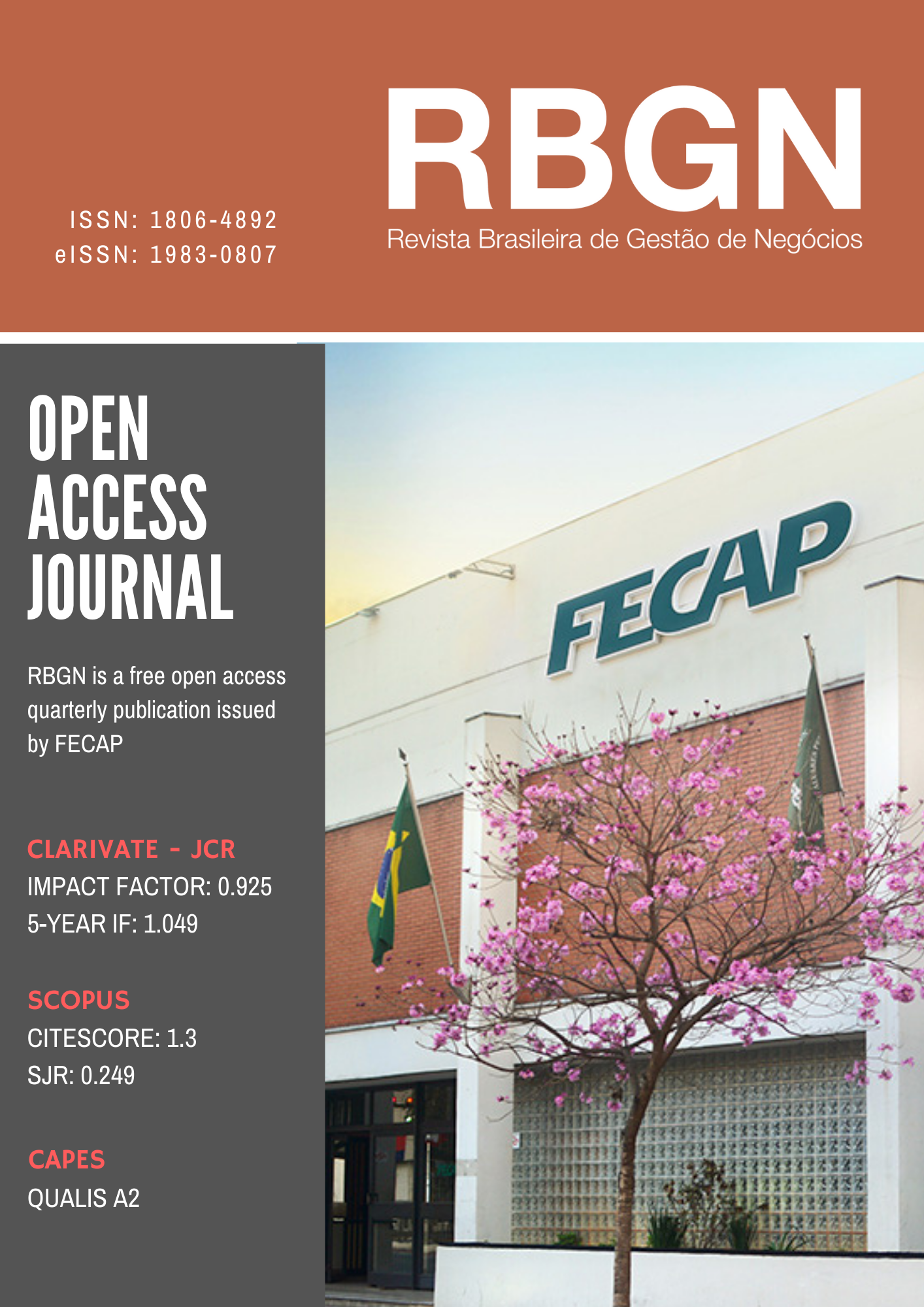Abstract
Purpose – This study analyzes self-perceptions of justice and burnout in job attitudes and behaviors (job satisfaction, affective organizational commitment, and turnover intentions).
Theoretical framework – The literature foresees that perceptions of injustice in the workplace may impact affective organizational commitment (Folger & Konovsky, 1989), job satisfaction (Folger & Konovsky, 1989; Cohen-Charash & Spector, 2001; Colquitt, Conlon, Wesson, Porter, & Ng, 2001), and turnover intentions (Flint, Haley, & McNally, 2013; Vaamonde, Omar, & Salessi, 2018), as well as causing frustration, chronic stress, and burnout (Maslach, 2007).
Design/methodology/approach – A quantitative survey was carried out of internal auditors of companies and a total of 124 valid questionnaires were obtained. The data were analyzed using structural equation modeling.
Findings – The results indicated direct relationships between distributive justice and behavioral variables. They also revealed mediation by burnout in the relationships between procedural justice and both job satisfaction and affective organizational commitment. They also show that auditors who perceive procedural injustice present turnover intentions when they are emotionally exhausted and in a state of depersonalization.
Research Practical & Social implications – This research shows how perceptions of organizational justice are capable of psychologically influencing individuals into displaying positive behaviors (greater job satisfaction and affective organizational commitment) or dysfunctional behaviors (turnover intentions).
Originality/value – The paper discusses attitudes of initiative and social interaction and passive attitudes arising from exhaustion and indifference to work, and how these can derive from judgments about resource allocation, decision-making processes, and interactions with supervisors.
If a paper is approved for publication, its copyright has to be transferred by the author(s) to the Review of Business Management – RBGN.
Accordingly, authors are REQUIRED to send RBGN a duly completed and signed Copyright Transfer Form. Please refer to the following template: [Copyright Transfer]
The conditions set out by the Copyright Transfer Form state that the Review of Business Management – RBGN owns, free of charge and permanently, the copyright of the papers it publishes. Although the authors are required to sign the Copyright Transfer Form, RBGN allows authors to hold and use their own copyright without restrictions.
The texts published by RBGN are the sole responsibility of their authors.
The review has adopted the CC-BY Creative Commons Attribution 4.0 allowing redistribution and reuse of papers on condition that the authorship is properly credited.


